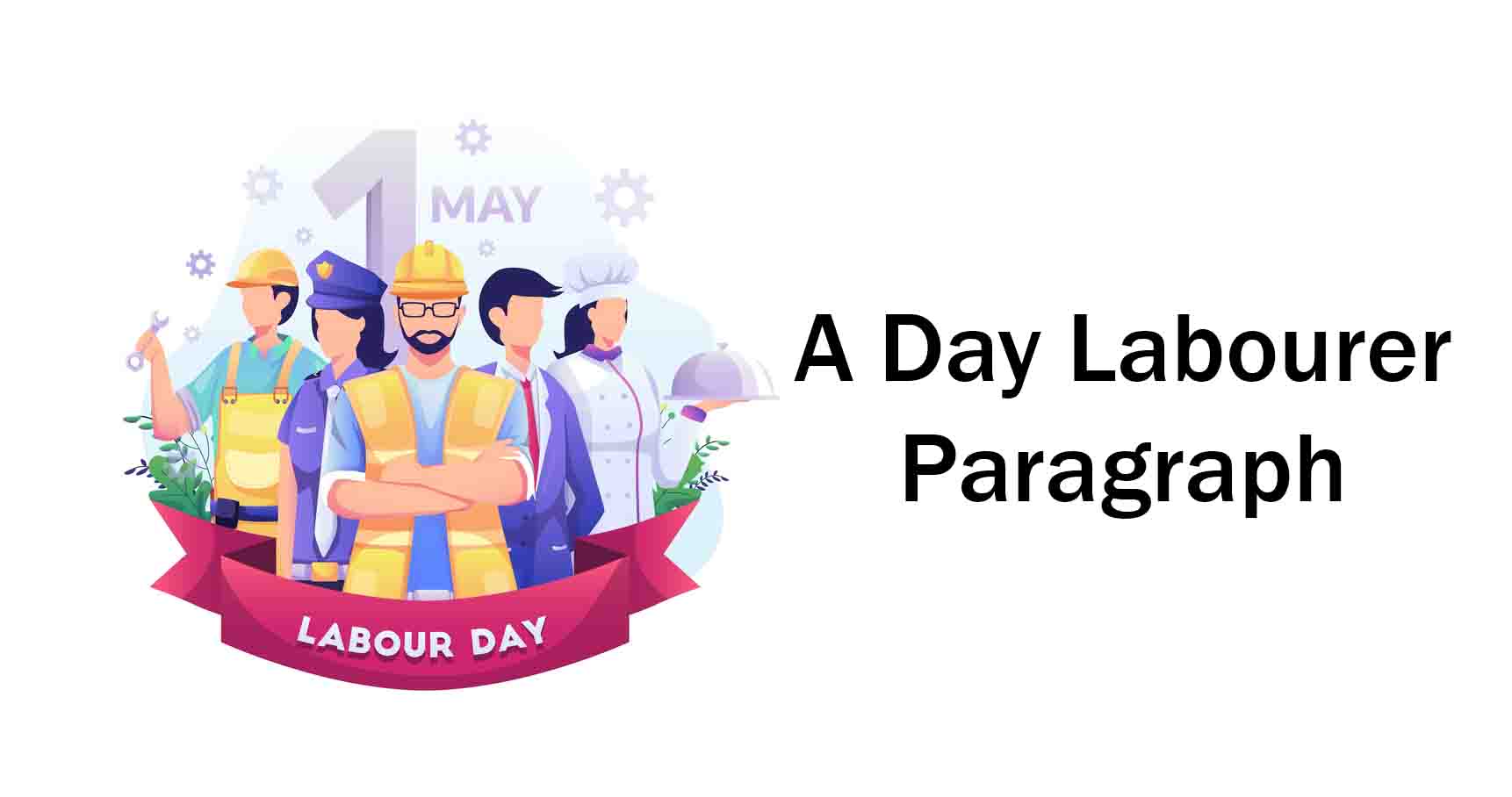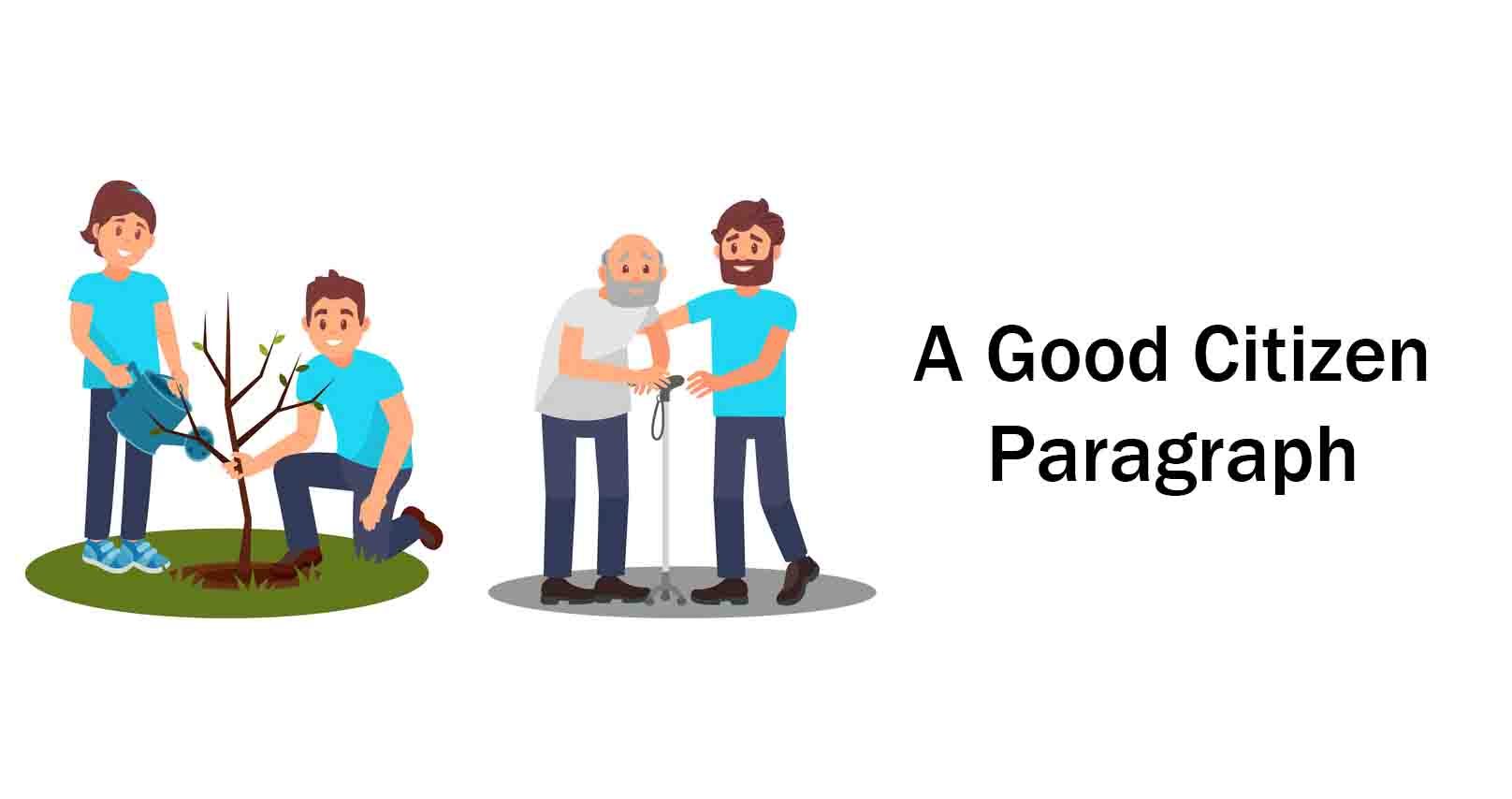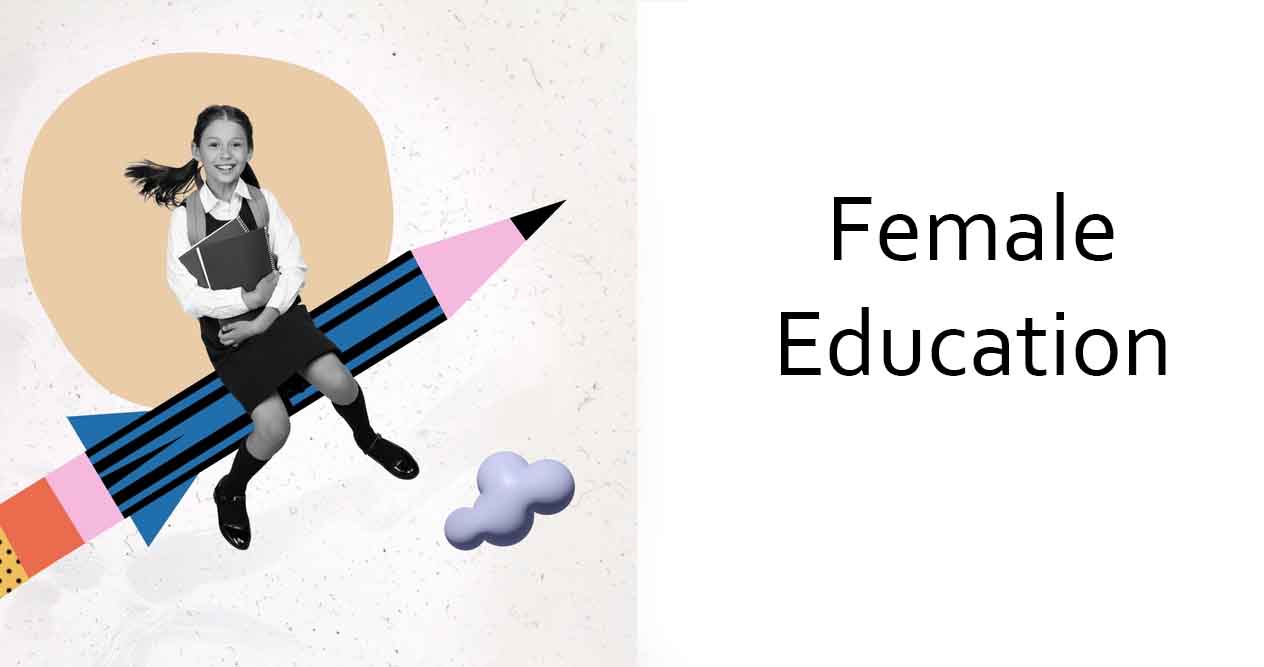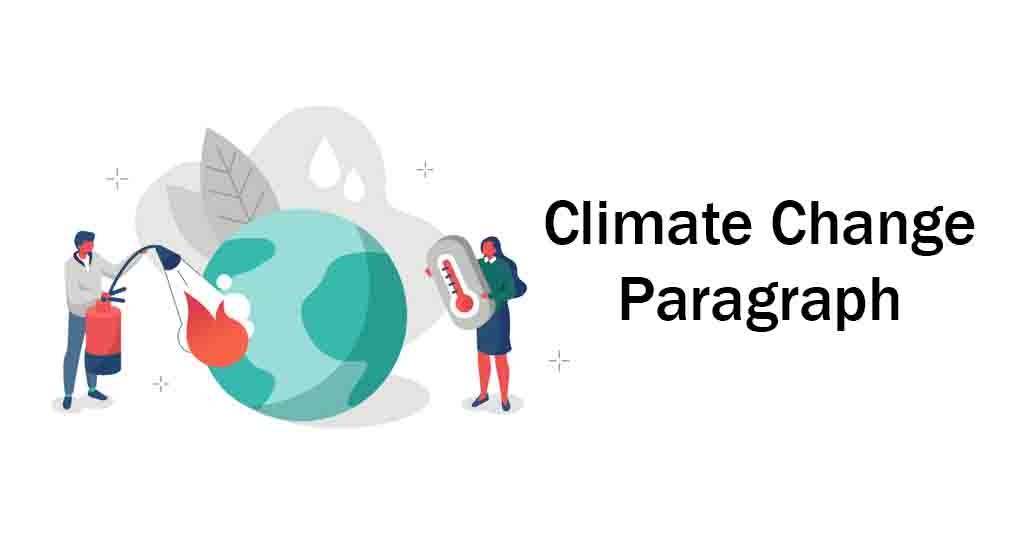Drug Addiction paragraph for hsc, ssc and 500, 300, 200, 150 words
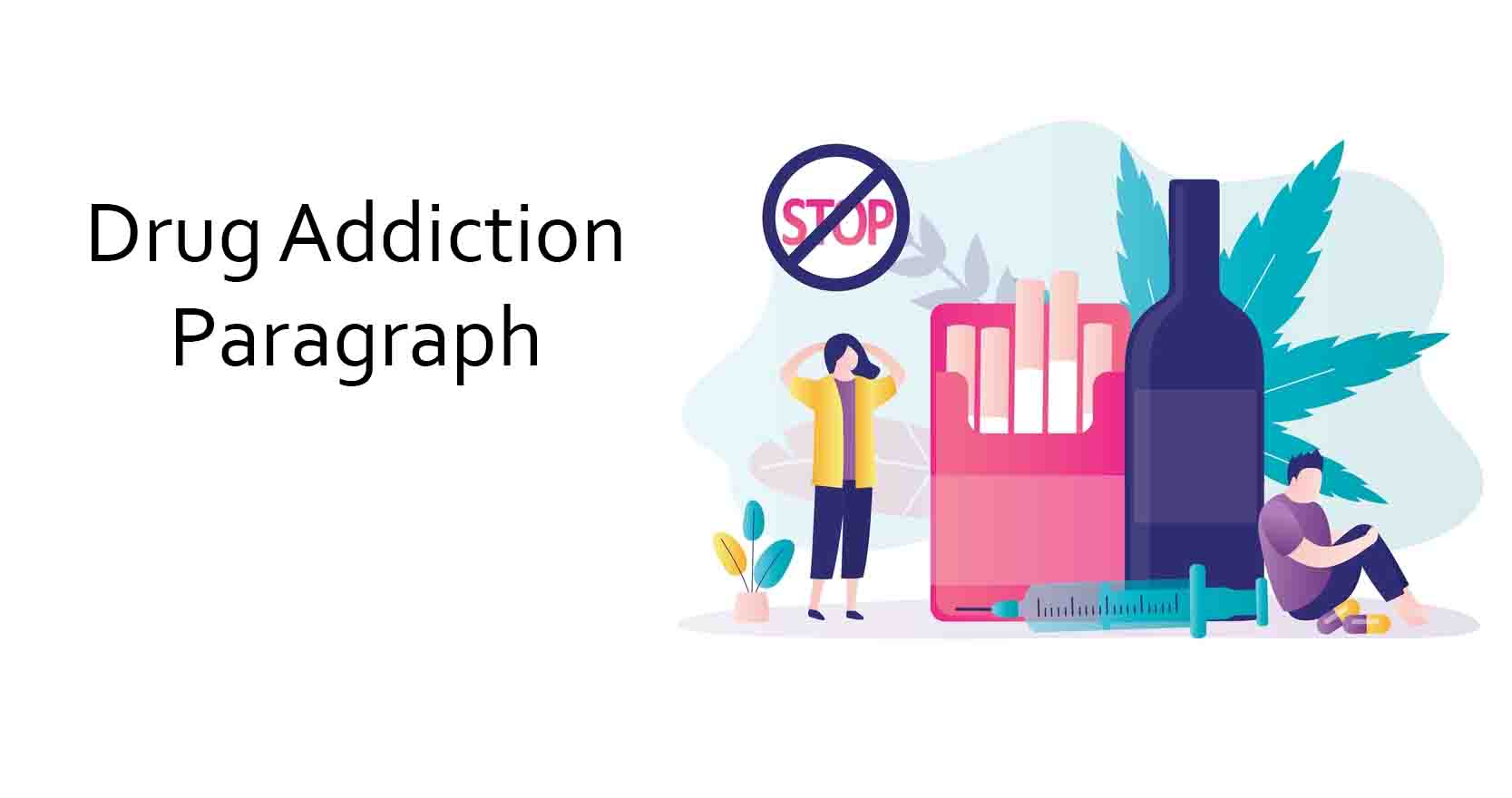
Drug addiction paragraph is a very common for class 12 or hsc exam and class 9-10 or ssc exam. Drug addiction is also a curse for the next generation. So it is high to think about it seriously.
Drug Addiction Paragraph in 500 Words
Drug addiction is becoming a terror concern to think about in this present world. It mainly indicates the addition of taking drugs that are simply off-prescribed and causes damage to a person mentally and physically. It brings a dark and hellish life to a normal person in the place of a healthy life. This drug addiction is not only a problem in our country but also it’s a global issue. Its damages have been observed from personal life to social life, from family to nationwide.
The commonly available drugs are alcohol, ganja, dadi, beer, heroin, phenytoin injection, yaba, etc. Addiction rises from taking drugs for refraining from any kind of mental trauma, familial problems, inferior complicity, pain from love, and some other causes. Many people take drugs to get relief from pain, but taking drugs makes them dependent on them which leads to another big pain in their life. A section of drug dealers attracts addicts and turns them into regular users. This addiction hampers different body organs, mental disturbance and the ultimate result is death. When the person is strongly addicted, the dealer asks for money for the drugs. But here, as the addicts are mostly the young generation, they cannot afford the money and commit several crimes like stealing money from home, pick-pocketing, involving in different illegal activities, etc.
Addicts get out of control and get attached to the crime world. Serially, he commits various severe crimes such as rapes, murder, unauthorized transaction of goods, money laundering, and different illegal activities. He forgets to respect his family, respect elders, and the affection of his juniors, and only he loves the smell of drugs. This way, the addicted person doesn’t harm only himself but also the family and society. Currently, there are no accurate statistics on drug addicts, but it is not difficult to understand that its deadly addiction is increasing day by day in our national arena. According to a 2012 report by the United Nations, the annual drug trade around the world is worth 32 billion USD. And also our country Bangladesh is being used as a transaction point for drug dealers.
Most drug addicts are transformed through traps and friend circles. It’s a matter of concern that most of the family members of the addicts don’t come forward to help them with proper guidelines and treatment. Rather they continuously separate them easily and this doesn’t help society. Getting separated from their family, they are completely involved in criminal activities. There is no alternative to creating social awareness against this damaging addiction. And it should be started by the family. Parents have to maintain a keen observation regarding the child’s friend, whom he is mixing with, change in behavior, and teach him the bad consequences of taking drugs. Similarly, stopping drug transactions, appointing skilled personnel at the border, using media for creating mass awareness, and enhancing the security-related organization are the stapes to be done by the government. And we have to remember always to hate the drug addiction, not the addicts.
Drug Addiction Paragraph for SSC, Class 9-10
The addiction to any harmful off-prescribed object that damages a person physically and mentally is called drug addiction. Heroine, ganja, yaba, fensidile, etc are common drugs easily available. A person can be addicted to drugs for different causes like too much stress, past trauma, mental imbalance, previous family history, failure in love, etc. The easy availability of drugs across villages and towns and the bad company ultimately lead to addiction. Sometimes the young also take drugs showing himself superior to others. Drugs usually make people relieved from different pain and trauma and make the person feel better, but it’s just for a short time. After that, it presents us with mental instability like depression, anxiety, and hallucination and comes with a lot of health problems, and damages our organs. It affects a person’s brain and behavior too much that the person becomes unable to control the use of drugs. Gradually losing control over himself, he takes higher doses for satisfaction. The final result is death. For buying drugs, a good amount of money is required. For that, the addicts start to engage in different criminal activities and illegal activities. They forget how to respect the elders of society and love their family members. So, at one time they lose bonding with their family and society and dip down into deep darkness. And if we come up with them and help them cure, they may live a normal and sound life again. So, effective rehabilitation centers are to be established and they are to be mentally encouraged to give up the drugs. Besides, we have to be aware of this dangerous social disease and also we have to make aware others. By standing beside the higher government, we can build a society free of killer drug addiction.
Drug Addiction Paragraph in 300 Words
Drug addiction is a chronic disease characterized by the compulsive use of drugs despite the harmful consequences. It is a complex condition that affects individuals physically, mentally, and socially. Drug addiction can be caused by a variety of factors, including genetics, environment, and personal choices. The physical effects of drug addiction can be severe and long-lasting. Chronic drug use can damage the brain and other organs, leading to a range of health problems such as heart disease, liver damage, and respiratory problems. Additionally, drug addiction can lead to mental health problems such as depression, anxiety, and paranoia. Socially, drug addiction can have a significant impact on relationships, employment, and finances. Individuals with drug addiction may struggle to maintain healthy relationships with family and friends and may experience difficulties in finding and keeping a job. They may also experience financial difficulties due to the cost of purchasing drugs. Treating drug addiction requires a comprehensive approach that addresses the physical, mental and social aspects of the disease. This may include medication-assisted treatment, behavioral therapy, and support groups such as 12-step programs. It is important for individuals with drug addiction to seek professional help as soon as possible to increase their chances of a successful recovery. Preventing drug addiction is also an essential part of addressing the problem. This includes educating individuals on the risks and consequences of drug use, promoting healthy coping mechanisms and stress management techniques, and providing access to resources such as counseling and support groups. Drug addiction is a chronic disease that affects individuals physically, mentally, and socially. It can have severe and long-lasting effects on an individual’s health, relationships, and finances. Treating drug addiction requires a comprehensive approach that addresses the physical, mental, and social aspects of the disease, and preventing drug addiction is an essential part of addressing the problem.
Drug Addiction Paragraph in 150 Words
Drug addiction is a chronic disease characterized by the compulsive use of drugs despite harmful consequences. It is caused by a variety of factors, including genetics, environment, and personal choices. The physical effects of drug addiction can be severe and long-lasting, leading to health problems such as heart disease, liver damage, and respiratory problems. Drug addiction can also lead to mental health problems such as depression, anxiety, and paranoia. Socially, drug addiction can have a significant impact on relationships, employment, and finances. Treating drug addiction requires a comprehensive approach that addresses the physical, mental and social aspects of the disease. Prevention of drug addiction includes educating individuals on the risks and consequences of drug use and promoting healthy coping mechanisms and stress management techniques. Seeking professional help as soon as possible is important for individuals with drug addiction to increase their chances of successful recovery.
What is a drug addiction paragraph in simple words?
Drug addiction is when a person becomes dependent on a drug and can’t stop using it even if it causes problems in their life. It’s like a strong craving or desire for the drug that makes them keep using it, even when it’s harmful. Addiction can affect a person’s health, relationships, and ability to do everyday things like work or go to school. It’s a serious problem that requires help from professionals to overcome.
What are the causes of drug addiction paragraph?
The causes of drug addiction can be complex and multifaceted. Here’s a paragraph summarizing some of the common factors that contribute to drug addiction:
Several factors can contribute to the development of drug addiction. One important factor is the biological aspect, as some individuals may be more susceptible to addiction due to genetic or brain chemistry differences. Environmental factors also play a significant role, such as growing up in a family or community where drug use is prevalent or experiencing trauma, abuse, or neglect. Mental health conditions, such as anxiety, depression, or unresolved emotional issues, can increase the risk of addiction. Additionally, peer pressure, curiosity, and a desire for pleasure or escape can lead individuals to experiment with drugs, which can eventually lead to addiction. It’s essential to note that addiction is a complex interplay of various factors, and not everyone who experiments with drugs will develop an addiction.
What are the solutions to drug addiction?
Treating drug addiction typically requires a comprehensive approach that addresses various aspects of the individual’s life. Here are some common solutions and strategies used to address drug addiction:
Detoxification: The first step in treatment is often detoxification, where the individual’s body is cleared of the drugs under medical supervision. This helps manage withdrawal symptoms and prepare the person for further treatment.
Behavioral therapies: Therapeutic interventions, such as cognitive-behavioral therapy (CBT), motivational interviewing, and contingency management, are commonly used to help individuals understand and change their behaviors and thought patterns associated with drug use. These therapies can help develop coping skills, enhance motivation for recovery, and prevent relapse.
Medications: In some cases, medications may be prescribed to aid in the treatment of drug addiction. For example, medications like methadone or buprenorphine are used to help manage opioid addiction, while medications like naltrexone can help prevent relapse by reducing cravings.
Support groups: Participating in support groups, such as Narcotics Anonymous (NA) or SMART Recovery, can provide valuable peer support and a sense of community for individuals in recovery. These groups offer a safe space to share experiences, receive guidance, and build a support network.
Holistic approaches: Complementary and holistic therapies, including yoga, meditation, art therapy, and exercise, can be beneficial in promoting overall well-being and aiding in the recovery process. These approaches can help reduce stress, improve mental health, and provide healthy outlets for emotions.
Aftercare and relapse prevention: Successful treatment often involves a long-term commitment to recovery. Aftercare programs, including ongoing counseling, support groups, and follow-up care, help individuals maintain sobriety and prevent relapse. It is essential to have a solid support system and continue working on personal growth and well-being.
Education and prevention: Educating individuals, families, and communities about the risks and consequences of drug addiction is crucial in preventing substance abuse. Promoting awareness, providing resources, and implementing preventive measures can help reduce the occurrence of addiction in the first place.
The most effective treatment plans are tailored to an individual’s specific needs and circumstances. Seeking professional help from addiction specialists, counselors, or treatment centers can provide personalized guidance and support in overcoming drug addiction.
